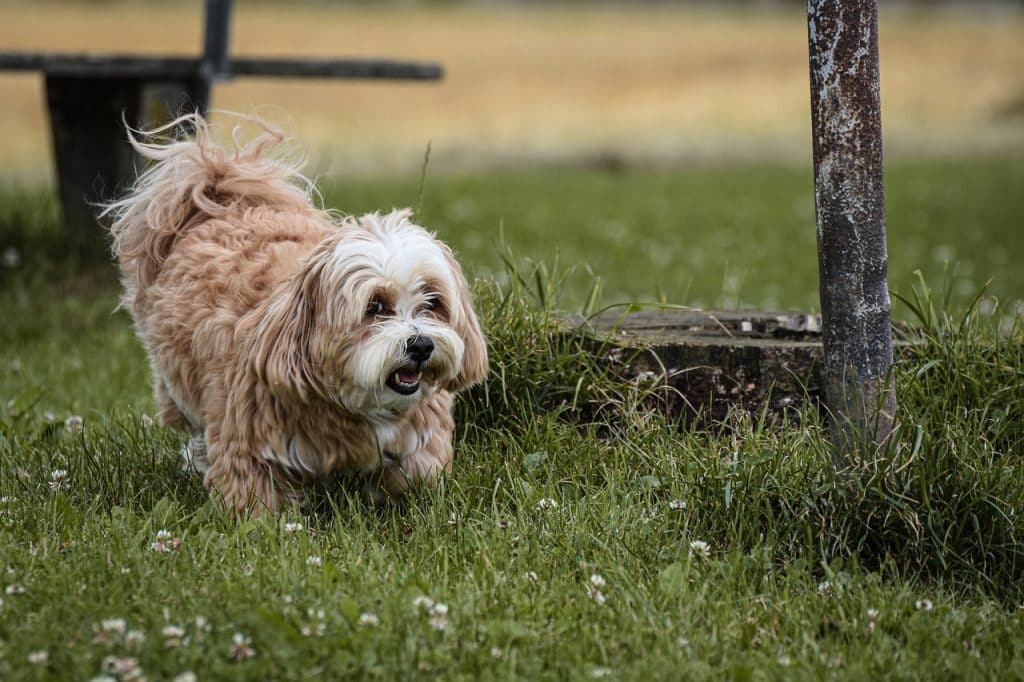Curious if your Maltese can enjoy a tasty banana? Look no further! In this article, we'll explore whether it's safe and healthy for Maltese dogs to eat bananas. Bananas are not only a delicious and nutritious snack for humans, but they also offer potential health benefits for our furry friends. While it's important to note that every dog is different, bananas can be a great addition to your Maltese's diet. Packed with essential vitamins and minerals like potassium, manganese, and vitamin C, bananas can support your dog's overall well-being.

However, moderation is key, as too many bananas can lead to upset stomachs or weight gain in dogs. We'll also provide some tips on how to safely introduce bananas into your Maltese's diet and discuss any potential risks or allergies to be aware of. So, if you're wondering whether your Maltese can enjoy some banana goodness, keep reading to find out more!
Nutritional Benefits of Bananas for Maltese Dogs
Bananas are not only a tasty treat, but they also offer several nutritional benefits for Maltese dogs. These fruits are rich in essential vitamins and minerals that can support your dog's overall health. Here are some of the key nutrients found in bananas:
- Potassium: Bananas are an excellent source of potassium, which is essential for maintaining proper muscle and nerve function in dogs. This mineral also plays a vital role in maintaining a healthy heart rhythm and balancing fluid levels in the body.
- Manganese: Another important mineral found in bananas is manganese. Manganese is involved in the metabolism of carbohydrates, proteins, and fats, and it also plays a role in bone health.
- Vitamin C: Bananas contain vitamin C, which acts as a powerful antioxidant that helps boost the immune system and protect against cellular damage. It also aids in collagen production, which is essential for healthy skin, joints, and connective tissues.

Apart from these key nutrients, bananas also provide dietary fiber, which can support healthy digestion in your Maltese dog. The fiber content in bananas can help regulate bowel movements and prevent constipation.
Potential Risks of Feeding Bananas to Maltese Dogs
While bananas can offer many health benefits, it's essential to be aware of the potential risks associated with feeding them to Maltese dogs. Here are a few things to consider:
- Upset Stomach: Like any new food, introducing bananas to your Maltese's diet should be done gradually. Feeding too many bananas at once can cause an upset stomach, diarrhea, or even vomiting. It's best to start with small slices or mashed banana and observe your dog's reaction.
- Weight Gain: Bananas are relatively high in sugar and calories compared to some other fruits. Feeding too many bananas or giving them as treats too frequently can contribute to weight gain in dogs. It's crucial to consider the overall calorie intake and balance it with your dog's daily food portions.
- Allergies: While it's rare, some dogs may have an allergic reaction to bananas. If you notice any signs of an allergic reaction, such as itching, swelling, or difficulty breathing, discontinue feeding bananas immediately and consult your veterinarian.
To minimize these risks, it's important to feed bananas in moderation and incorporate them into your Maltese's balanced diet.
How to Safely Introduce Bananas to Your Maltese Dog's Diet
When introducing bananas to your Maltese dog's diet, it's crucial to do so gradually and in moderation. Follow these steps to ensure a safe and positive experience:
- Consult Your Veterinarian: Before adding any new dog food to your Maltese's diet, it's always a good idea to consult with your veterinarian. They can provide personalized advice based on your dog's specific needs and health conditions.
- Start Small: Begin by offering a small slice or a small spoonful of mashed banana as a treat. Observe your dog's reaction and monitor for any signs of an upset stomach or allergies.
- Monitor Digestive Health: Keep an eye on your Maltese's bowel movements after introducing bananas. If you notice any changes in consistency or frequency, it might be an indication that you need to adjust the portion size or discontinue feeding bananas.
- Balance with Regular Meals: Remember that bananas should not replace your Maltese's regular meals. They should be offered as an occasional treat or as part of a balanced diet.
By taking these steps, you can safely introduce bananas into your Maltese's diet and ensure a positive experience for both you and your furry friend.
Recommended Portion Size for Feeding Bananas to Maltese Dogs
When it comes to feeding bananas to your Maltese dog, portion control is essential. While bananas offer nutritional benefits, they should be given in moderation to avoid any potential health issues. Here are some guidelines for determining the appropriate portion size:
- Size Matters: Consider your Maltese's size and weight when determining the portion size. Smaller dogs will require smaller portions, while larger Maltese dogs can handle slightly larger portions.
- Snack Size: As a general rule, a small slice or a teaspoon of mashed banana can be an appropriate serving size for a Maltese dog. Remember, this is a treat and should not replace a full meal.
- Frequency: It's best to offer bananas as an occasional treat rather than a daily occurrence. Once or twice a week is generally a safe frequency.
- Observe Your Dog's Weight: Monitor your Maltese's weight regularly and adjust the portion size accordingly. If you notice weight gain, it may be necessary to reduce the amount of banana given.
Remember that these are general guidelines, and it's essential to consider your dog's individual needs and any specific dietary restrictions or health conditions they may have.
Signs of Allergies or Negative Reactions to Bananas in Maltese Dogs
While allergies to bananas are relatively rare in dogs, it's still important to be vigilant and watch for any signs of allergic reactions or negative responses. Here are some common symptoms to be aware of:
- Itching: Excessive itching or scratching, particularly around the mouth or face, can indicate an allergic reaction to bananas.
- Swelling: Swelling of the face, lips, or throat is another sign of an allergic response. This can be accompanied by difficulty breathing.
- Digestive Issues: Diarrhea, vomiting, or an upset stomach can occur if your Maltese is sensitive to bananas or if they have consumed too much.
If you observe any of these symptoms after feeding bananas to your Maltese, discontinue giving bananas and consult your veterinarian for further guidance.
Other Fruits That Are Safe for Maltese Dogs to Eat
If you're looking to diversify your Maltese's fruit options, there are several other safe and healthy fruits you can offer as treats. Here are some examples:

- Apples: Apples are a great source of vitamins A and C. Remove the seeds and core, and offer small, sliced pieces as a snack.
- Blueberries: Blueberries are packed with antioxidants and can be a tasty and nutritious treat for Maltese dogs. Serve them fresh or frozen.
- Watermelon: Watermelon is a hydrating fruit that dogs often enjoy. Remove the seeds and rind, and offer small, bite-sized pieces.
- Strawberries: Strawberries are a good source of vitamins and fiber. Cut them into small pieces and offer as an occasional treat.
Remember to introduce new fruits gradually and in moderation, monitoring your Maltese's reaction and adjusting portion sizes accordingly.
Balancing Fruit Treats with a Balanced Diet for Maltese Dogs
While fruits, including bananas, can be a healthy addition to your Maltese's diet, it's important to remember that they should not replace a balanced and complete dog food. Fruits should be offered as occasional treats or supplements to ensure your dog receives all the necessary nutrients from their regular meals.
Consult with your veterinarian to determine the ideal balance of fruits and other treats for your Maltese based on their individual needs, age, and health conditions.
Homemade Banana Treats for Maltese Dogs
If you're feeling adventurous, you can also make homemade banana treats for your Maltese. Here's a simple recipe to get you started:
Ingredients:
- 1 ripe banana
- 1 cup whole wheat flour
- 1/4 cup oats
- 1/4 cup unsweetened applesauce
- 1/4 cup water
Instructions:
- Preheat your oven to 350°F (175°C) and line a baking sheet with parchment paper.
- Mash the ripe banana in a bowl until smooth.
- Add the whole wheat flour, oats, applesauce, and water to the mashed banana. Mix well until all the ingredients are combined.
- Roll the dough into small balls or flatten it into shapes of your choice.
- Place the treats on the prepared baking sheet and bake for 15-20 minutes or until golden brown.
- Allow the treats to cool completely before serving them to your Maltese.
These homemade banana treats can be a fun and healthy alternative to store-bought options. However, always remember to feed them in moderation and consider your Maltese's specific dietary needs.
Precautions for Senior or Ill Maltese Dogs
As our Maltese companions age or face health challenges, their dietary needs may evolve. Here are specific precautions to consider for senior or ill Maltese dogs:
Senior Maltese Dogs
- Consultation with Veterinarian: Before making any dietary changes, consult your veterinarian for tailored advice based on your senior Maltese dog's health status.
- Joint Health Supplements: Consider incorporating supplements like glucosamine to support joint health, a common concern for senior dogs.
- Calorie Management: Adjust the calorie intake to accommodate a potentially less active lifestyle. Senior dogs may require fewer calories to maintain a healthy weight.
- Easy-to-Chew Treats: Opt for softer treats that are easier on aging teeth. This ensures your senior Maltese can enjoy treats without discomfort.

Ill Maltese Dogs
- Vet-prescribed Diet: Follow any diet plan prescribed by the veterinarian to address specific health issues. This may involve special formulations or restricted ingredients.
- Monitor Food Intake: Keep a close eye on your ill Maltese dog's appetite and adjust their diet accordingly. Some illnesses may require a temporary change in feeding habits.
- Hydration is Key: Ensure your dog stays adequately hydrated, especially if dealing with illnesses that may impact water intake.
- Avoid High-Fat Treats: For dogs with certain health conditions, particularly those affecting the liver or pancreas, steer clear of high-fat treats, including banana-based ones.
Summary of Do's and Don'ts
Let's recap the key do's and don'ts when considering bananas in your Maltese dog's diet:
Do's
- Moderation: Feed bananas in moderation to avoid potential digestive issues due to their natural sugar content.
- Gradual Introduction: Introduce bananas slowly, especially if it's their first time, to monitor for any adverse reactions.
- Dietary Variety: Offer a variety of treats to ensure your Maltese dog gets a balanced diet. Bananas can be part of a diverse treat selection.
- Consult Veterinarian: If in doubt or if your dog shows signs of allergies, consult your veterinarian promptly for guidance.
Don'ts
- Avoid Overfeeding: While bananas are healthy, excessive consumption can lead to an imbalance in their diet. Stick to appropriate portion sizes.
- Skip Consultation for Health Concerns: If your Maltese dog has existing health conditions, consult your vet before introducing new treats, including bananas.
- No Banana Peels: Refrain from feeding banana peels as they can be tough to digest and may lead to gastrointestinal issues.
- Watch for Allergic Reactions: If your dog shows signs of allergies, such as itching or digestive problems, avoid further banana consumption and seek professional advice.
By following these precautions and guidelines, you can ensure that treating your Maltese dog with bananas is a positive and enjoyable experience, promoting their health and happiness.
Conclusion
In conclusion, bananas can be a safe and healthy treat for Maltese dogs when fed in moderation. They offer a range of essential vitamins and minerals that can support your dog's overall well-being. However, it's important to introduce bananas gradually, monitor your Maltese's reaction, and adjust portion sizes accordingly. Be mindful of any potential risks, such as upset stomachs or weight gain, and consult your veterinarian if you have any concerns. Remember to balance fruit treats with a balanced diet and consider other safe fruits to offer as occasional treats. With these guidelines in mind, you can enjoy some banana goodness with your Maltese dog while keeping their health and well-being a top priority.

FAQs
Q1: Can Maltese dogs eat banana peels?
While the flesh of the banana is generally safe, it's advisable to avoid feeding banana peels to dogs due to potential digestive issues.
Q2: How often can I give bananas to my Maltese dog?
Moderation is key. A small amount occasionally as a treat is suitable, but excessive consumption may lead to digestive problems.
Q3: Are there any fruits that Maltese dogs should avoid?
Yes, some fruits, like grapes and raisins, can be toxic to dogs. Consult your veterinarian for a list of safe fruits.
Q4: Can I mix bananas with other dog treats?
Mixing bananas with other dog-friendly treats can provide variety, but ensure that all ingredients are safe for canine consumption.
Q5: What should I do if my Maltese dog shows signs of an allergic reaction to bananas?
Consult your veterinarian immediately. They can provide guidance on managing allergies and recommend suitable alternatives.